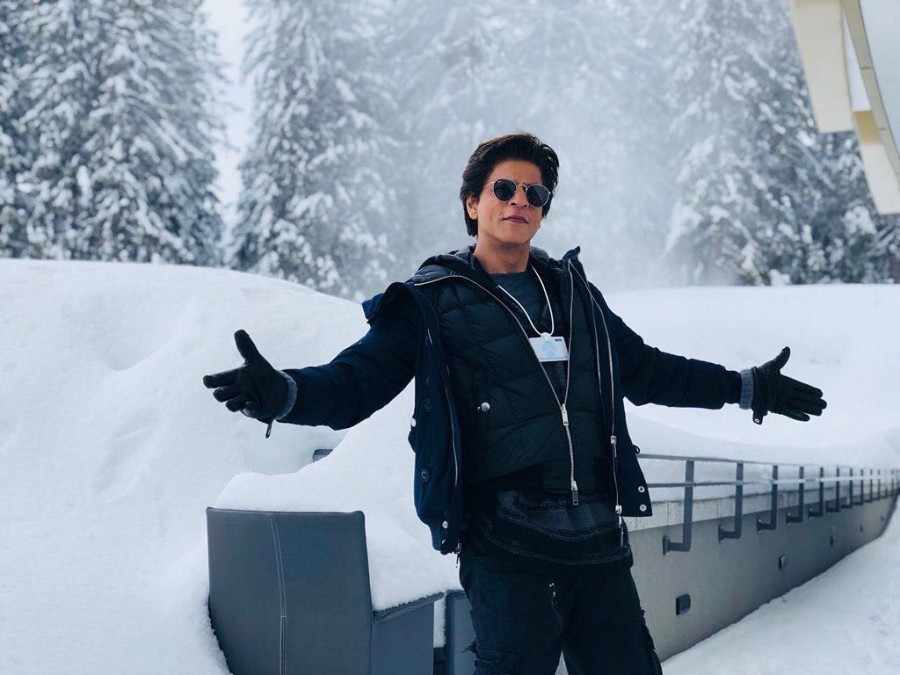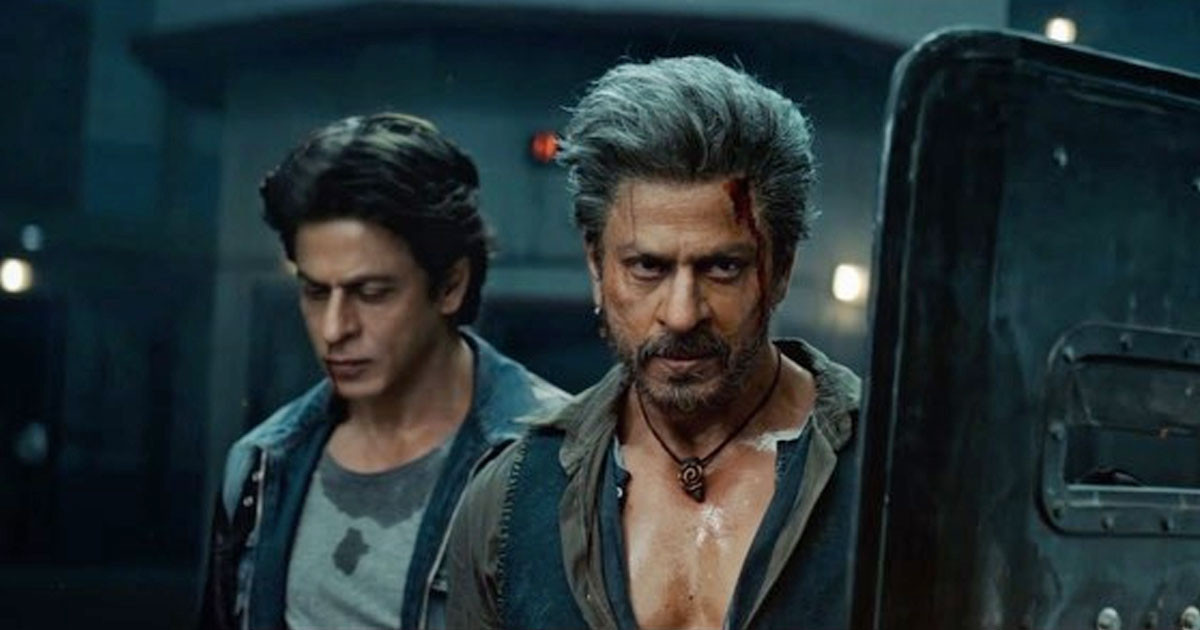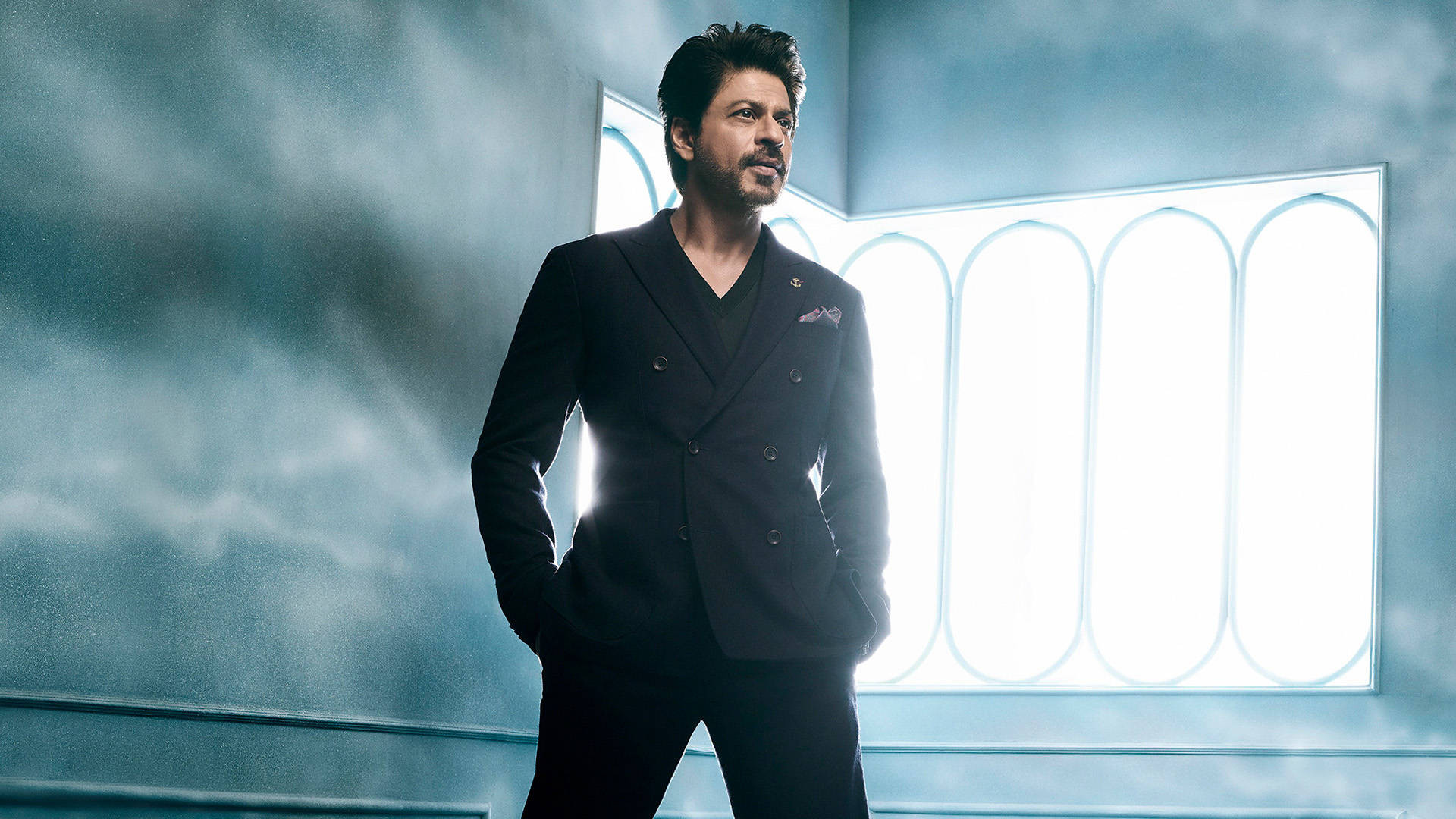Shah Rukh Khan: The love language of South Asia
Actor's fans weigh in on what the superstar means to them
KARACHI:In 1997, a young actor hopefully crooned, "Saari duniya par main chhaaun/Bas itna sa khwaab hai" (To conquer the whole world, that is all I dream of). Was the star aware that by mouthing the lyrics, he would, inadvertently, be manifesting his destiny? Only Shah Rukh Khan can answer this query.
26 years later, riding high on the massive commercial successes of films like Pathaan and Jawan, the last of the stars has maintained his long-standing position as the King of Bollywood. It hasn't always been easy, and audiences worldwide have witnessed his spectacular highs and heartwrenching lows. However, as 2023 ends with Dunki having hit theatre screens as well, the star has proven, yet again, that the world will always be his to conquer.
The era of Shah Rukh Khan

As the pandemic wreaked havoc on the world, global audiences began to find comfort in OTT offerings. The trend threatened to overstay its welcome, with the looming danger of radicalising cinema-goers and inducing a sense of unmatched comfort, crossed with safety and content, within the confines of their home. Consequently, many star-studded releases failed to make their mark in cinema houses. The world needed its king to step in and deliver, and deliver, he did.
Nikhil Taneja, the co-founder and Chief of Yuvaa, an Indian "Gen Z media, insights and impact organisation" and the creator and host of Be A Man, Yaar! a "one-of-its-kind chat show on positive masculinity," weighs in on the same. "This is the era of Shah Rukh Khan," he proclaims. "It started way back in the 90s, and thirty years later, I'm so glad that it [has continued]."
Nikhil furthers, "He's singlehandedly saved Bollywood. Tom Cruise did that after the pandemic with Top Gun, where people were not showing up to theatres and he made the theatrical world event of the post-pandemic world with [the film]. Shah Rukh Khan did that now with India." Explaining how "no film was crossing even the INR200 crore or INR300 crore mark, which was the norm, or something expected from big blockbusters" after the COVID hit, Nikhil adds, "Shah Rukh Khan singlehandedly drove people to theatres. It is not an overstatement to say that he's saved Bollywood."
Entertainment journalist Shaheera Anwar shares, "There is no Bollywood without Shah Rukh Khan. Whether you like him or not. Bollywood is inseparable from SRK." She adds, "Pathaan and Jawan have reaffirmed that the industry's essence is incomplete without his enduring presence." Anthropologist and gender theorist Ekta Shaikh contributes, "The massive revenue he generated for the Hindi belt put an end to the monetary comparison between industries in the South. Shah Rukh's fictional resurrections in his films translated to a literal resurrection of Hindi cinema."
Two sides of the coin

Despite the actor's enviable trajectory, Shaheera highlights how "some of his movie plots may have aged problematically." Even so, she takes a step back to look at the bigger picture. "His journey from humble beginnings to global fame, coupled with nostalgia, transforms each of his movie’s release or birthday celebration into a festive occasion." She adds, "Rewatching these classics, his relatable interviews, his new releases and how he’s aged, the charm that he still holds to this day, symbolises hope and a connection to cherished memories in people's lives."
Nikhil details Shah Rukh's struggle, explaining why his monumental comeback is all the more meaningful. "I feel like, for the longest time, Shah Rukh was struggling," he begins."He was not able to find where he fit in. He was, for the longest time, the romantic hero - the beautiful eyes, the big smile, the hands that go wide and invite you in for a hug. He was that guy, you know. He's not your alpha, masculine, person who would do those Salman Khan kind of roles. He was termed metrosexual at one time, which is now called soft masculinity, so to speak. We can't accept men as being 'non-alphas' or 'non-macho' so we have to find terms for it."
Further outlining the star's "identity crisis," Nikhil states, "Now, after this long period of gestation, where he's really thought about who he is and why he needs to exist in today's landscape, he's decided he's going to give in to his most raw, hardcore elements of him - the action hero that he's always wanted to be...He's reinvented himself and shown what Shah Rukh Khan can be. [His films are] festivals for that reason because he's one of the only men in cinema who all genders appreciate...he has, in his heart, in his soul, something for everyone."
Impact

Such is the legacy of the superstar that the impact of his films has embedded itself in the lives of many. Shaheera states, "His name is sure to go down in history books and be a pivotal chapter in the study of cinema and stardom. He’s a global icon and in his own words, 'the last of the stars.' I mean, how many people do you know who’ve wanted to become actors after seeing SRK?" She adds, "He’s not just a mere name, but an emotion." Ekta remarks, "Shah Rukh Khan is the king. His legacy surpasses his movies, for he is an artefact of popular culture. His legacy, for me, is his ability to reinvent. His legacy is continuity."
Nikhil candidly shares, "He showed me it was okay to be a man who worships his partner, who is sensitive, who is emotional, who cried, who has charm, sophistication, softness, gentleness, kindness. He's [shown] what it really means to be a gentleman - and I don't mean that just as one word but as two words. He's a gentleman and that's not something you would see very often over the last few years." He perfectly concludes, "Shah Rukh Khan is the love language of South Asia."
Have something to add? Share it in the comments

1704177126-4/SRKfanspiece24-(1)1704177126-4.webp)
COMMENTS
Comments are moderated and generally will be posted if they are on-topic and not abusive.
For more information, please see our Comments FAQ